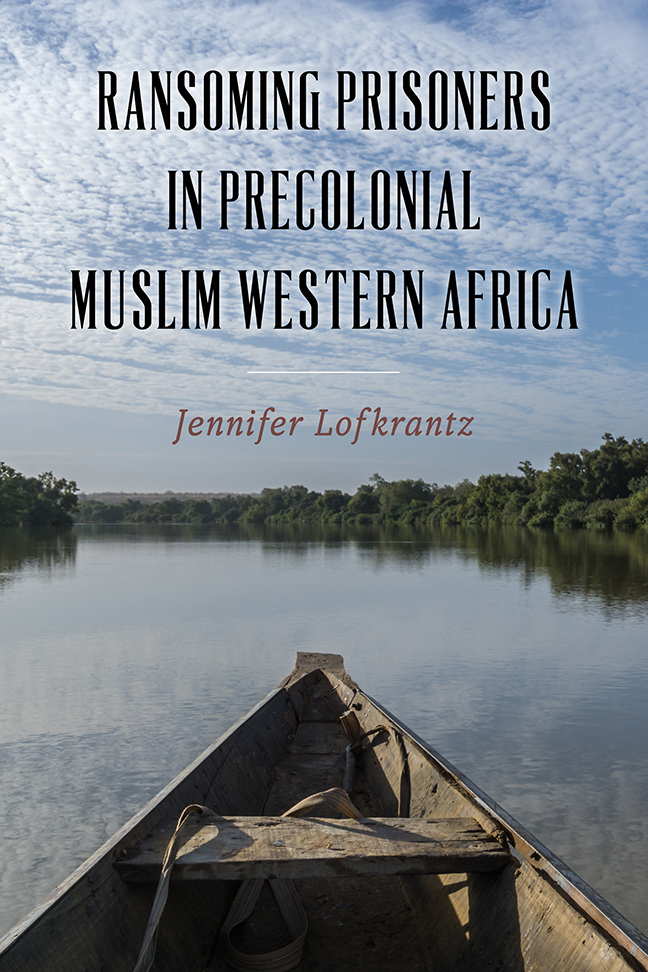Book contents
- Frontmatter
- Contents
- Tables
- Acknowledgments
- Introduction
- One Islamic Discourse on Slavery and Ransoming before 1800
- Two The Policy and Practice of Ransoming in the Maghrib
- Three Jihad, the Sokoto Caliphate, and Ransoming
- Four The Jihad of ‘Umar Taal and Its Ransoming Nonpolicies
- Five The Negotiation and Practice of Ransoming Prisoners
- Conclusion
- Bibliography
- Index
Two - The Policy and Practice of Ransoming in the Maghrib
Published online by Cambridge University Press: 10 January 2024
- Frontmatter
- Contents
- Tables
- Acknowledgments
- Introduction
- One Islamic Discourse on Slavery and Ransoming before 1800
- Two The Policy and Practice of Ransoming in the Maghrib
- Three Jihad, the Sokoto Caliphate, and Ransoming
- Four The Jihad of ‘Umar Taal and Its Ransoming Nonpolicies
- Five The Negotiation and Practice of Ransoming Prisoners
- Conclusion
- Bibliography
- Index
Summary
The ‘Alawī Sultan of Morocco, Sayyīdī Muḥammad b. Abdallāh, also known as Sīdī Muḥammad, (r. 1757–1790) was known for restoring peace and stability in Morocco after thirty years of disorder following the death of his grandfather Mawlāy Ismā’īl in 1727. He took the protection of his subjects and of Muslims in general very seriously. Indeed, his ransoming of Muslims held captive or enslaved in Christian European polities and his signing of peace treaties with those polities that included provisions for the return of each other's captives reflects this point. Yet, his reign and policies concerning ransoming not only showcase the importance of the tradition of the Mālikī madh’hab and his desire to normalize relations with Europe but also demonstrate the changing relationship with southern Morocco and changing means of dealing with captives, in particular shipwrecked captives. Just as in West Africa, and indeed elsewhere in the Muslim world and beyond, the practice of ransoming in the Maghrib reflected the fact that people valued freedom. Ransoming practices in the Maghrib and the northern Sahara shared a common foundation in Mālikī law with ransoming practices in the western and central Sudan and Sahel. The same legal principles applied, yet while in West Africa the emphasis was on the usefulness of ransoming as a way to rescue freeborn Muslims, which will discussed in the following chapters, in the Maghrib ransoming was also utilized as a means for dealing with, and benefiting financially from, Christian captives. In the Maghrib, both the principle that Muslims should ransom freeborn Muslims and the legality of ransoming back captives held by Muslims was followed. This can be seen by examining the motives, government sanction, and the role of foreign and internal relations in the ransoming practices of the Mediterranean world of the Maghrib and of the Sahara. With a focus on Morocco, this chapter will first discuss the Maghribi scholarly discourse on slavery, Maghrib ransoming policy in the context of Mediterranean and desert-edge politics, and actual ransoming practices.
Scholars and the Question of Slavery in the Maghrib
Similar to the Muslim states of West Africa, in Morocco there was tension between rulers, “the possessors of power,” and scholars, “the possessors of knowledge.” Vincent Cornell describes the medieval Muslim state, and Morocco in particular, as a “protection racket.”
- Type
- Chapter
- Information
- Ransoming Prisoners in Precolonial Muslim Western Africa , pp. 53 - 79Publisher: Boydell & BrewerPrint publication year: 2023



